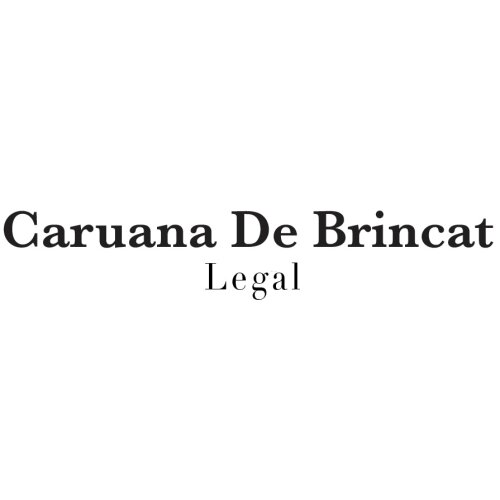Best Corporate & Commercial Lawyers in Malta
Share your needs with us, get contacted by law firms.
Free. Takes 2 min.
Or refine your search by selecting a city:
List of the best lawyers in Malta
About Corporate & Commercial Law in Malta
Corporate and commercial law in Malta covers the legal frameworks that govern how businesses are established, operated, merged, or dissolved. Malta, as a member of the European Union, has developed a robust legal environment that is attractive for both local entrepreneurs and international investors. Key areas include company formation, mergers and acquisitions, regulatory compliance, intellectual property, employment law, and commercial dispute resolution. Malta's legal system blends civil law traditions with European Union directives, making the jurisdiction especially appealing for business structuring, finance, gaming, and maritime industries.
Why You May Need a Lawyer
There are several situations in which seeking the assistance of a corporate and commercial lawyer in Malta is highly advisable. Startups often require legal guidance when setting up a company to ensure the right structure and compliance with local requirements. Businesses seeking to enter into commercial contracts, joint ventures, or mergers and acquisitions will benefit from legal due diligence, contract drafting, and negotiation expertise. Other situations include regulatory compliance issues, shareholder disputes, intellectual property protection, employment matters, insolvency, and facing litigation or arbitration. A specialist lawyer can navigate regulatory complexities, minimize legal risks, and safeguard business interests.
Local Laws Overview
Malta’s corporate and commercial laws encompass various legal aspects, with the Companies Act serving as the main legislation for company formation, administration, and dissolution. The Commercial Code regulates trading activities, partnerships, sales, and related commercial transactions. Compliance with EU-derived regulations is vital, especially concerning anti-money laundering, data protection, and cross-border transactions. Malta recognises a wide array of company structures, including private and public limited liability companies and partnerships. The Malta Financial Services Authority (MFSA) regulates businesses in sectors like finance, insurance, and investment. Additionally, employment and contract law provide rules on hiring, employee rights, and agreement enforcement. Understanding these regulatory landscapes is essential for businesses to operate lawfully and efficiently in Malta.
Frequently Asked Questions
What does company formation in Malta require?
To set up a company in Malta, you need to register with the Malta Business Registry, provide a Memorandum and Articles of Association, appoint directors and a company secretary, have a registered office address in Malta, and fulfill minimum capital requirements.
Is Malta a favorable jurisdiction for international business and why?
Yes, due to its EU membership, competitive tax system, skilled workforce, and modern legal framework, Malta is considered highly attractive for international businesses seeking to structure their operations efficiently.
What types of business entities can be formed in Malta?
Common business forms include private and public limited liability companies, partnerships, sole proprietorships, and branches of overseas companies.
What is the role of the Malta Financial Services Authority (MFSA)?
The MFSA is the single regulator for financial services in Malta, overseeing licensing, compliance, and regulation of activities in sectors like banking, investments, insurance, and pensions.
Do shareholders have specific rights and obligations in Maltese companies?
Yes, shareholders have rights such as voting at general meetings, receiving dividends, and accessing certain company information, as well as obligations like fulfilling unpaid share capital commitments.
How are commercial disputes resolved in Malta?
Disputes can be resolved through direct negotiation, mediation, arbitration, or litigation in the Maltese courts depending on the issue and contract terms.
Are there specific regulations for employment in Maltese companies?
Yes, Maltese employment law provides rules on employment contracts, working conditions, termination, and employee rights, often incorporating EU directives on labor standards.
What are the tax considerations for companies in Malta?
Malta operates a full imputation tax system, with effective tax rates for companies potentially lower than the standard 35 percent when shareholders claim refunds. Tax planning requires professional guidance.
What are the requirements for company compliance and reporting?
Companies must hold annual general meetings, maintain accurate financial records, file annual returns and accounts, and meet auditing standards where applicable.
How does intellectual property protection work in Malta?
Patents, trademarks, designs, and copyrights are protected under Maltese law, with registration processes available to secure exclusive rights nationally and via EU-wide mechanisms.
Additional Resources
For corporate and commercial matters in Malta, several organizations provide further guidance and support. The Malta Business Registry handles company formation and maintenance. The Malta Financial Services Authority (MFSA) supervises financial institutions and related businesses. The Chamber of Commerce, Enterprise and Industry promotes commercial interests. The Ministry for the Economy, Enterprise and Strategic Projects publishes business-related information. For dispute resolution, the Malta Arbitration Centre provides mediation and arbitration services. These institutions, along with recognized law firms and professional service providers, are valuable resources for legal and procedural clarity.
Next Steps
If you need legal advice or representation in corporate and commercial matters in Malta, consider the following steps. Identify your specific legal needs and potential risks. Prepare relevant documents related to your case or business. Research and contact reputable law firms or specialist lawyers who focus on corporate and commercial law in Malta. Arrange consultations to discuss your situation and obtain tailored advice. Be proactive in addressing compliance and legal issues to prevent costly disputes in the future. Professional legal guidance is crucial to protecting your business interests and ensuring you operate in line with Maltese and EU law.
Lawzana helps you find the best lawyers and law firms in Malta through a curated and pre-screened list of qualified legal professionals. Our platform offers rankings and detailed profiles of attorneys and law firms, allowing you to compare based on practice areas, including Corporate & Commercial, experience, and client feedback.
Each profile includes a description of the firm's areas of practice, client reviews, team members and partners, year of establishment, spoken languages, office locations, contact information, social media presence, and any published articles or resources. Most firms on our platform speak English and are experienced in both local and international legal matters.
Get a quote from top-rated law firms in Malta — quickly, securely, and without unnecessary hassle.
Disclaimer:
The information provided on this page is for general informational purposes only and does not constitute legal advice. While we strive to ensure the accuracy and relevance of the content, legal information may change over time, and interpretations of the law can vary. You should always consult with a qualified legal professional for advice specific to your situation.
We disclaim all liability for actions taken or not taken based on the content of this page. If you believe any information is incorrect or outdated, please contact us, and we will review and update it where appropriate.
Browse corporate & commercial law firms by service in Malta
Malta Attorneys in related practice areas.
Browse corporate & commercial law firms by city in Malta
Refine your search by selecting a city.
















